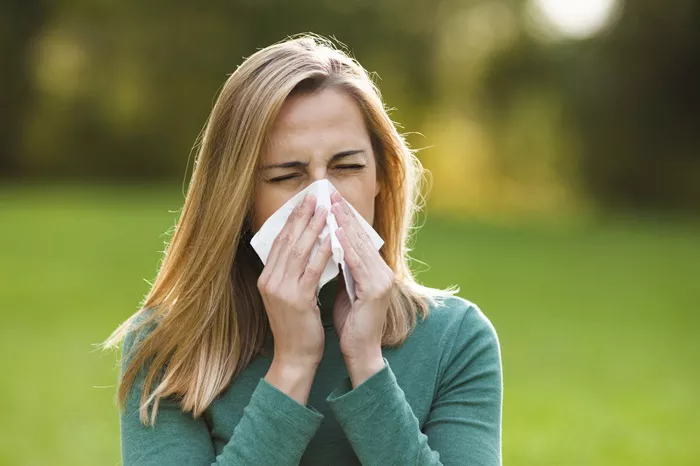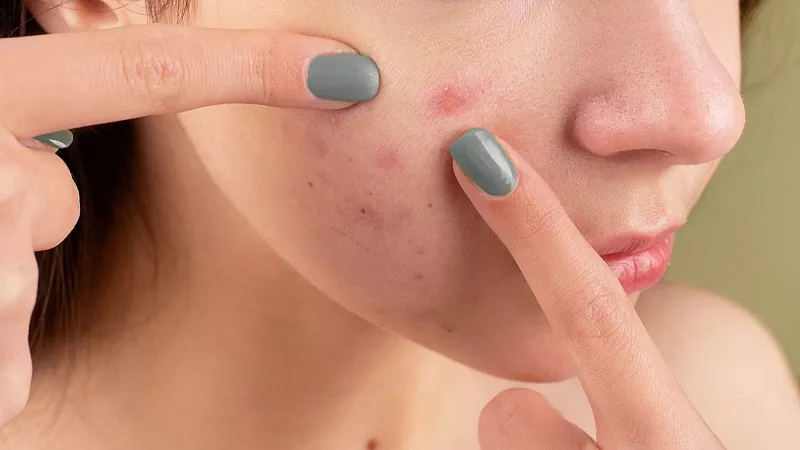In recent years, gluten allergies and sensitivities have skyrocketed, becoming a significant health concern for many individuals worldwide. What was once a rare and relatively unknown issue has turned into a widespread condition, with gluten-free diets and products becoming mainstream. This article delves into the reasons behind the rise in gluten allergies, exploring the factors that contribute to this phenomenon, the biological mechanisms involved, and the implications for public health.
Gluten and Its Role in the Diet
Gluten is a group of proteins found in wheat, barley, rye, and their derivatives. It gives dough its elasticity, helping it rise and maintain its shape. Gluten is not just in bread and pastries; it is also found in a wide range of processed foods, from sauces and soups to snacks and beer. For most people, gluten is harmless, but for some, it can cause severe health issues.
What Is Gluten?
Gluten is composed of two main proteins: gliadin and glutenin. These proteins are responsible for the chewy texture of baked goods. Gliadin is the component that triggers the immune response in individuals with celiac disease, a serious autoimmune disorder. However, gluten sensitivity and wheat allergies are distinct from celiac disease and involve different mechanisms.
The Traditional Role of Gluten in Human Diets
For centuries, gluten-containing grains have been staples in many cultures. Bread, pasta, and other wheat-based products have provided a significant portion of daily calories for people around the world. The agricultural revolution introduced wheat as a major crop, and its prevalence in the human diet grew exponentially. So why, after thousands of years, are people suddenly struggling with gluten?
The Rise in Gluten-Related Disorders
The increase in gluten-related disorders can be attributed to a combination of genetic, environmental, and lifestyle factors. Understanding these factors is key to addressing the current epidemic of gluten allergies and sensitivities.
1. Increased Awareness and Better Diagnostics
One of the primary reasons for the rise in reported gluten allergies is increased awareness and better diagnostic tools. In the past, many cases of gluten-related disorders were misdiagnosed or went undetected. Today, with more knowledge and improved testing methods, doctors can more accurately diagnose conditions like celiac disease, wheat allergy, and non-celiac gluten sensitivity (NCGS).
2. Changes in Wheat Cultivation and Processing
Modern agricultural practices have significantly altered the wheat we consume today. Over the past century, wheat has been selectively bred for higher yield, disease resistance, and specific baking qualities. These changes have led to an increase in the gluten content of wheat, potentially making it more difficult for some people to digest.
Furthermore, the way wheat is processed has also changed. Traditional methods of bread-making involved long fermentation periods, which helped break down gluten and make it easier to digest. Today, with faster production processes, the gluten is less broken down, which might contribute to the rise in gluten-related disorders.
3. The Hygiene Hypothesis
The hygiene hypothesis suggests that a lack of exposure to microbes in early childhood can lead to a weakened immune system, making individuals more susceptible to allergies and autoimmune diseases. As societies become more hygienic and urbanized, children are exposed to fewer pathogens, which may lead to an increased prevalence of gluten allergies and other autoimmune disorders.
4. Changes in Diet and Lifestyle
Modern diets are drastically different from those of our ancestors. The overconsumption of processed foods, high in gluten, preservatives, and additives, might contribute to the rise in gluten-related issues. Additionally, the modern lifestyle, characterized by high stress, lack of sleep, and sedentary behavior, can negatively affect gut health, making the digestive system more vulnerable to gluten.
5. The Role of Gut Health
Gut health plays a crucial role in the development of gluten-related disorders. The human gut is home to trillions of microbes that aid in digestion and regulate the immune system. Disruptions to this delicate balance, caused by antibiotics, poor diet, or stress, can lead to a condition known as “leaky gut,” where the intestinal lining becomes more permeable. This allows gluten fragments to pass into the bloodstream, triggering an immune response.
See Also: Why is celiac not an allergy: Things You Need To Know
The Different Types of Gluten-Related Disorders
Gluten-related disorders encompass a spectrum of conditions, each with its own symptoms and underlying mechanisms. Understanding the differences between these disorders is essential for proper diagnosis and treatment.
1. Celiac Disease
Celiac disease is an autoimmune disorder where the ingestion of gluten leads to damage in the small intestine. In individuals withceliac disease, the immune system mistakenly attacks the villi, tiny finger-like projections in the small intestine that absorb nutrients. This can lead to malnutrition, anemia, osteoporosis, and other serious health issues. Celiac disease affects about 1% of the population, but its prevalence has been increasing in recent decades.
2. Non-Celiac Gluten Sensitivity (NCGS)
Non-celiac gluten sensitivity (NCGS) is a condition where individuals experience symptoms similar to celiac disease after consuming gluten, but without the autoimmune response or intestinal damage. Symptoms of NCGS include bloating, abdominal pain, diarrhea, fatigue, and brain fog. The exact mechanism of NCGS is not well understood, and there is ongoing debate within the medical community about its definition and diagnosis.
3. Wheat Allergy
Wheat allergy is an allergic reaction to proteins found in wheat, including but not limited to gluten. It is an IgE-mediated response, meaning that the immune system produces antibodies called immunoglobulin E (IgE) in response to wheat proteins. Symptoms can range from mild, such as hives or nasal congestion, to severe, such as anaphylaxis. Wheat allergy is more common in children, but many outgrow it by adulthood.
The Impact of Gluten Allergies on Daily Life
For those diagnosed with a gluten-related disorder, managing the condition can be challenging. The omnipresence of gluten in the modern diet means that avoiding it requires constant vigilance and lifestyle adjustments.
1. The Gluten-Free Diet: A Necessary Solution
The primary treatment for celiac disease, NCGS, and wheat allergy is a strict gluten-free diet. This means eliminating all foods that contain gluten, including bread, pasta, cereals, and many processed foods. While the availability of gluten-free products has increased, these alternatives can be expensive and sometimes less nutritious than their gluten-containing counterparts.
2. Social and Psychological Implications
Living with a gluten-related disorder can also have social and psychological implications. Individuals may feel isolated or anxious about eating out or attending social events. The need to constantly monitor food labels and ask questions about ingredients can lead to feelings of stress and frustration. Support from family, friends, and healthcare providers is crucial in helping individuals cope with these challenges.
3. The Economic Burden of Gluten-Related Disorders
Gluten-related disorders also come with an economic burden. The cost of gluten-free products is often higher than regular products, and individuals may incur additional healthcare costs for diagnosis, treatment, and management of their condition. In some cases, individuals may also face loss of income if their condition interferes with their ability to work.
The Future of Gluten-Related Disorders
As the prevalence of gluten-related disorders continues to rise, research is ongoing to better understand these conditions and develop new treatments. Advances in genetics, immunology, and gastroenterology hold promise for the future.
1. Genetic Research and Personalized Medicine
Genetic research is shedding light on the factors that make some individuals more susceptible to gluten-related disorders. For example, specific genes, such as HLA-DQ2 and HLA-DQ8, are known to be associated with celiac disease. Understanding these genetic markers may lead to the development of personalized medicine approaches, where treatment is tailored to an individual’s genetic profile.
2. New Diagnostic Tools and Therapies
Scientists are also working on developing new diagnostic tools and therapies. For example, research is underway to create a pill that could allow individuals with celiac disease to consume gluten without triggering an immune response. Other potential treatments include enzyme supplements that help break down gluten or vaccines that could desensitize the immune system to gluten.
3. Public Health Initiatives
Public health initiatives are also essential in addressing the rise in gluten-related disorders. Education campaigns can raise awareness about the symptoms and management of these conditions, while regulations can ensure that gluten-free products are accurately labeled and accessible to those who need them. Continued research and funding are necessary to support these efforts and improve the quality of life for individuals with gluten-related disorders.
Conclusion
The rise in gluten allergies and sensitivities is a complex issue, driven by a combination of genetic, environmental, and lifestyle factors. While increased awareness and better diagnostics have contributed to the surge in reported cases, changes in wheat cultivation, modern diets, and gut health also play significant roles. As research continues to advance, there is hope for new treatments and better management strategies that will alleviate the burden of gluten-related disorders and improve the lives of those affected.
[inline_related_posts title=”You Might Be Interested In” title_align=”left” style=”list” number=”6″ align=”none” ids=”883,11237,11233″ by=”categories” orderby=”rand” order=”DESC” hide_thumb=”no” thumb_right=”no” views=”no” date=”yes” grid_columns=”2″ post_type=”” tax=””]
































